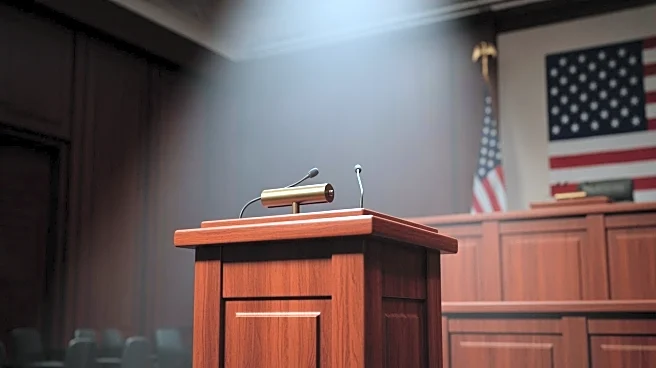What's Happening?
Senator Jeff Merkley of Oregon delivered a marathon speech on the Senate floor, protesting against President Trump's policies and the ongoing government shutdown. Merkley's speech, lasting over 22 hours,
set a record for the longest speech by an Oregon senator. The shutdown, now in its 22nd day, is the second-longest in U.S. history, affecting thousands of federal workers and delaying flights. Merkley criticized the administration's approach, emphasizing the need for greater healthcare spending as a condition for reopening the government. Meanwhile, President Trump is preparing for a trip to Asia, which has drawn criticism from Senate Minority Leader Chuck Schumer, who argues that the president should focus on domestic issues.
Why It's Important?
The prolonged government shutdown has significant implications for federal workers, who are missing paychecks, and for public services, including food assistance programs. The shutdown highlights the deep political divide in Congress, with Democrats demanding healthcare concessions and Republicans insisting on reopening the government first. The situation underscores the challenges in reaching bipartisan agreements and the impact of political stalemates on everyday Americans. The shutdown also affects national parks and public lands, with reduced staffing leading to potential closures and maintenance issues.
What's Next?
As the shutdown continues, lawmakers are considering a short-term funding bill to temporarily reopen the government. However, there is little chance of passing such a bill without bipartisan support. The Senate is set to vote again on a funding measure, but it is expected to fail. The ongoing impasse may lead to further economic and social disruptions, with federal workers facing financial uncertainty and public services being strained. The situation calls for urgent negotiations to resolve the deadlock and address the underlying policy disagreements.
Beyond the Headlines
The shutdown raises ethical and governance questions about the use of political tactics like filibusters and the impact of executive decisions on legislative processes. It also highlights the vulnerability of public services to political conflicts and the need for more resilient funding mechanisms. The situation may prompt discussions on reforming Senate rules, such as the filibuster, to prevent future shutdowns and ensure more efficient government operations.










